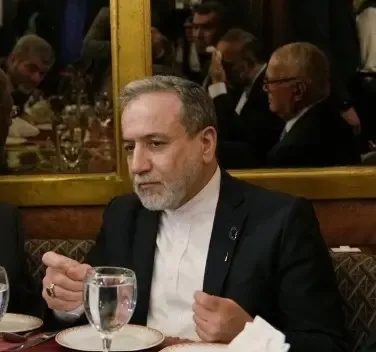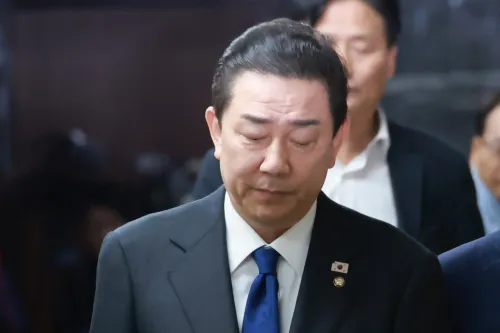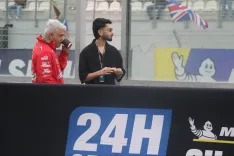Will Iranian FM Stand Firm Against 'Unfair Pressure' from Europe on Nuclear Deal?

Synopsis
Key Takeaways
- Iran rejects political pressure regarding its nuclear program.
- International tensions are escalating around the nuclear deal.
- The E3 has triggered the snapback mechanism for sanctions.
- Iran emphasizes its commitment to diplomacy.
- Negotiations have been stalled due to external pressures.
Tehran, Sep 20 (NationPress) Iran's Foreign Minister Seyed Abbas Araghchi stated that Tehran will not concede to political maneuvers and unjust pressure regarding its nuclear program, cautioning that such actions could heighten tensions. He emphasized that Iran has always sought diplomatic dialogue and technical collaboration.
These comments were made during a phone conversation with Rafael Grossi, the head of the International Atomic Energy Agency (IAEA), as reported by the state-run news agency IRNA. This discussion occurred following the UN Security Council's inability to pass a resolution extending the sanctions relief stipulated in the 2015 nuclear agreement.
Last month, the E3 nations—Britain, France, and Germany—initiated the “snapback” mechanism of the deal, allowing UN sanctions to be reinstated within a 30-day period should Iran be found in violation of the 2015 nuclear accord, formally known as the Joint Comprehensive Plan of Action (JCPOA). These sanctions are anticipated to take effect later this month, according to reports from Xinhua news agency.
Araghchi condemned the political climate at a recent IAEA board meeting, asserting that Iran’s cooperation with the agency remains in line with international standards.
The Iranian foreign ministry also criticized the European actions as illegal, unjustified, and provocative, accusing the E3 of undermining diplomatic efforts.
The E3 claims that Iran has not provided comprehensive access to inspectors, has withheld clarity regarding nuclear materials, and failed to meet an end-of-August deadline to propose concrete steps for re-engaging in discussions with the United States and other parties.
Iran previously engaged in multiple rounds of nuclear negotiations with Washington earlier this year but suspended both the discussions and cooperation with the IAEA following Israeli airstrikes—backed by the United States—on Iranian nuclear sites in June.
The JCPOA, signed by Iran and six global powers in 2015, has faced significant challenges since the United States withdrew unilaterally in 2018, prompting Tehran to gradually reduce its compliance.










